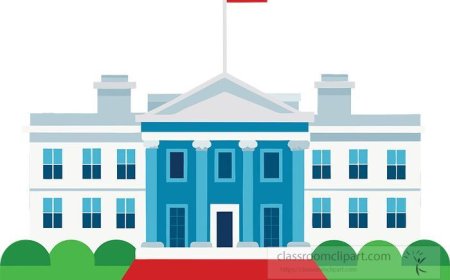Voting in the U.S. Explained for Kids and Students
Learn how voting works in the United States, from local elections to choosing the President. Discover why your vote matters!
🗳 Voting in the United States: How Elections Work
🇺🇸 Introduction: What Is Voting?
Voting is how people choose their leaders and make decisions in a democracy. In the United States, voting gives citizens the power to elect government officials at the local, state, and national levels. It is one of the most important rights—and responsibilities—that Americans have.
From picking a school board member to choosing the President, voting allows people to have a voice in the decisions that affect their lives. Understanding how voting works helps prepare young people to be active, informed citizens when they’re old enough to cast their first ballot.
🧑🤝🧑 Who Can Vote in the U.S.?
In the United States, you can vote in elections if you:
- Are a U.S. citizen
- Are at least 18 years old on or before election day
- Are registered to vote in your state (each state has its own registration rules)
Some states also let 16- and 17-year-olds pre-register, so they are ready when they turn 18.
In the past, not everyone had the right to vote. Over time, important amendments and laws were passed to expand voting rights:
- The 15th Amendment gave Black men the right to vote (1870)
- The 19th Amendment gave women the right to vote (1920)
- The 26th Amendment lowered the voting age from 21 to 18 (1971)
- The Voting Rights Act of 1965 banned unfair practices like literacy tests
🗳 Types of Elections
There are different types of elections in the U.S., depending on what’s being decided:
🏛 Local Elections
- Mayors, city council members, school boards
- Usually held in odd-numbered years or in between national elections
🗺 State Elections
- Governors, state legislators, judges, and more
- Often happen during midterm elections (in between presidential elections)
🇺🇸 Federal Elections
- President and Vice President (every 4 years)
- U.S. Senators (every 6 years)
- U.S. Representatives (every 2 years)
📊 Special Elections & Ballot Measures
- Sometimes voters decide on laws or amendments directly
- These are called referendums or ballot initiatives
🗓 When Do Americans Vote?
Most elections happen on Election Day, which is:
- The first Tuesday after the first Monday in November in even-numbered years
- Presidential elections happen every four years
- Midterm elections happen every two years, between presidential elections
Some states also offer:
- Early voting (weeks before Election Day)
- Absentee voting (by mail)
- Vote by mail (all ballots are mailed to voters)
These options help make voting easier and more accessible.
🗳 How Voting Works
Here’s what typically happens during an election:
- Register to vote – You sign up with your name and address
- Learn about the candidates and issues – Use voter guides, debates, and websites
- Get your ballot – At a polling place, by mail, or early voting site
- Vote – Choose your candidates and answers to ballot questions
- Submit your ballot – Place it in a ballot box, mail it in, or press “Submit” on a voting machine
Election workers and volunteers make sure everything is fair, organized, and secure.
📮 The Electoral College (Presidential Elections)
When Americans vote for President, they are really choosing electors in something called the Electoral College. Here's how it works:
- Each state has a number of electoral votes based on its population
- Most states use a winner-takes-all system
- There are 538 total electoral votes—a candidate needs 270 to win
This system means that a candidate can win the popular vote (total number of votes nationwide) but still lose the election, if the opponent wins more electoral votes.
📈 Why Voting Matters
Voting gives people a voice in:
- The laws that are made
- The taxes we pay
- The services we use (schools, parks, police)
- Who makes decisions for the community and the country
When people don’t vote, their voices aren’t heard. That’s why it’s so important to learn about the issues and take part in elections when you’re old enough.
🧒 Kid-Friendly Summary
Voting is how Americans choose leaders and decide laws. Citizens 18 and older can vote in local, state, and national elections. Elections help keep the government fair by letting people have a say. Even if you’re not old enough to vote yet, learning about voting helps you get ready to be a responsible citizen.
📚 Vocabulary Words
| Word | Definition |
|---|---|
| Ballot | A paper or electronic form used to vote |
| Election | A process where people vote to choose leaders or decide laws |
| Electoral College | A system used to elect the President in the U.S. |
| Register | To sign up officially to vote |
| Absentee voting | Voting by mail if you can’t go to a polling place |
| Referendum | A direct vote by citizens on a law or issue |
| Polling place | A location where people go to vote |
| Popular vote | The total number of individual votes cast by citizens |
🧠 Key Takeaways
- Voting is a key part of democracy in the United States.
- Citizens vote in local, state, and federal elections.
- The voting age is 18, but many people work to make sure everyone is registered and informed.
- Presidential elections use the Electoral College, while most other elections use the popular vote.
- Voting gives every person a voice in government.
🌟 Interesting Facts
- George Washington was elected unanimously—every elector voted for him!
- Only 58% of eligible Americans voted in the 2020 presidential election.
- Some states let people register and vote on the same day.
- Kids can’t vote, but they can help in campaigns and at polling stations (in some states)!
- The longest voting line in U.S. history was reported to be over 10 hours long!
💭 Think About It
If you could vote today, what would be most important to you?
What changes would you want to make in your community, school, or country?
📝 Interactive Quiz: Test Your Voting Knowledge
1. What is voting?
A) A way to play games
B) Choosing leaders and laws through elections
C) A type of tax
D) Something only Presidents do
2. How old must you be to vote in the U.S.?
A) 16
B) 17
C) 18
D) 21
3. What is the Electoral College?
A) A school for future presidents
B) A group that counts ballots
C) A system that helps elect the President
D) A list of Congress members
4. When is Election Day held in the U.S.?
A) January 1
B) The first Tuesday after the first Monday in November
C) Every Saturday
D) On the President’s birthday
5. What does it mean to register to vote?
A) Watch a debate
B) Sign up to vote officially
C) Volunteer to run for office
D) Count ballots



















































